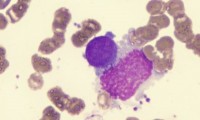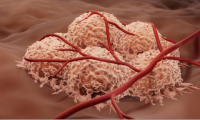-
KCL project receives £100,000 UK government funding to boost AI-assisted healthcare
- Source: drugdu
- 77
- April 9, 2024
-
Johnson & Johnson Set to Acquire Shockwave Medical, Aiming to Strengthen Company’s MedTech Division
- Source: drugdu
- 79
- April 8, 2024
-
World Health Organization launches AI-powered digital health assistant for public health
- Source: drugdu
- 117
- April 8, 2024
-
Key mechanism controlling bone marrow stem cells could lead to new therapies
- Source: drugdu
- 94
- April 8, 2024
-
Profound Medical, Siemens Healthineers collab on ultrasound ablation
- Source: drugdu
- 79
- April 7, 2024
-
Poolbeg’s cytokine release syndrome drug shows potential
- Source: drugdu
- 101
- April 7, 2024
-
Xilio fires 21% of its workforce and reprioritises pipeline
- Source: drugdu
- 75
- April 5, 2024
-
Cellenkos links with Mount Sinai to explore CK0804 for myelofibrosis
- Source: drugdu
- 72
- April 5, 2024
-
FDA Approves Alexion’s Voydeya as Add-on Treatment for Adults with Extravascular Hemolysis
- Source: drugdu
- 87
- April 4, 2024
-
Gilead, Xilio Therapeutics Ink Exclusive Licensing Agreement to Develop Early Phase Tumor-Activated IL-12
- Source: drugdu
- 93
- April 3, 2024
your submission has already been received.
OK
Subscribe
Please enter a valid Email address!
Submit
The most relevant industry news & insight will be sent to you every two weeks.













